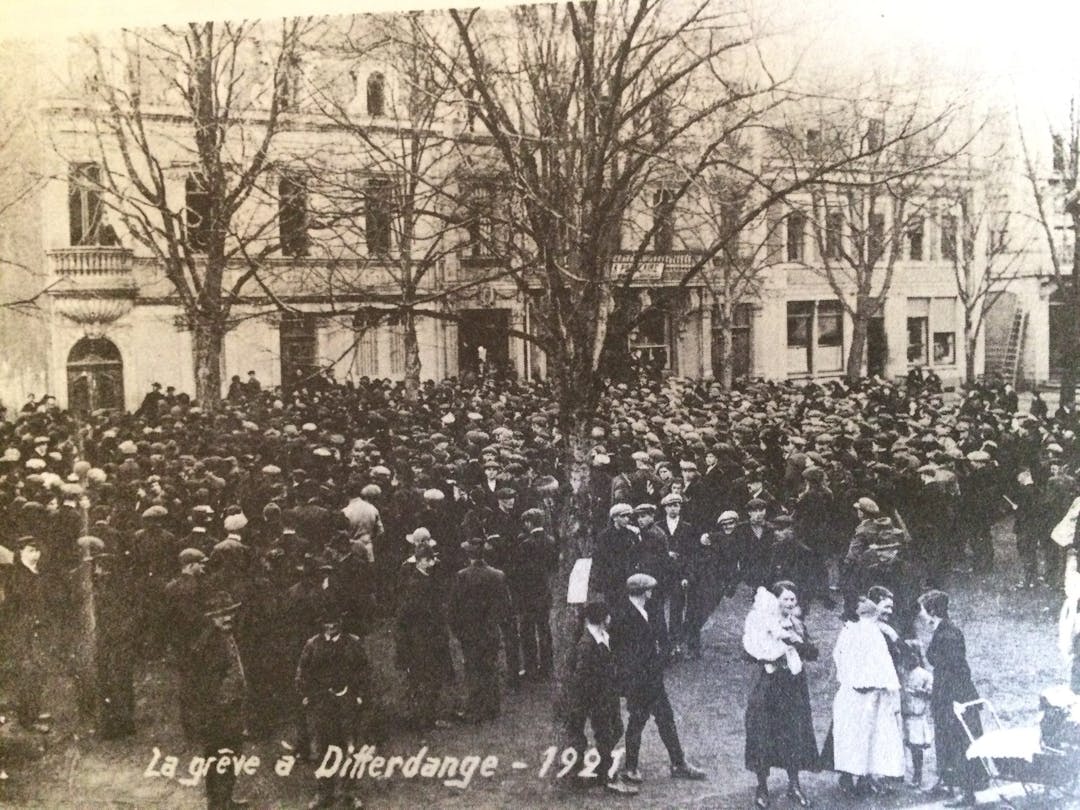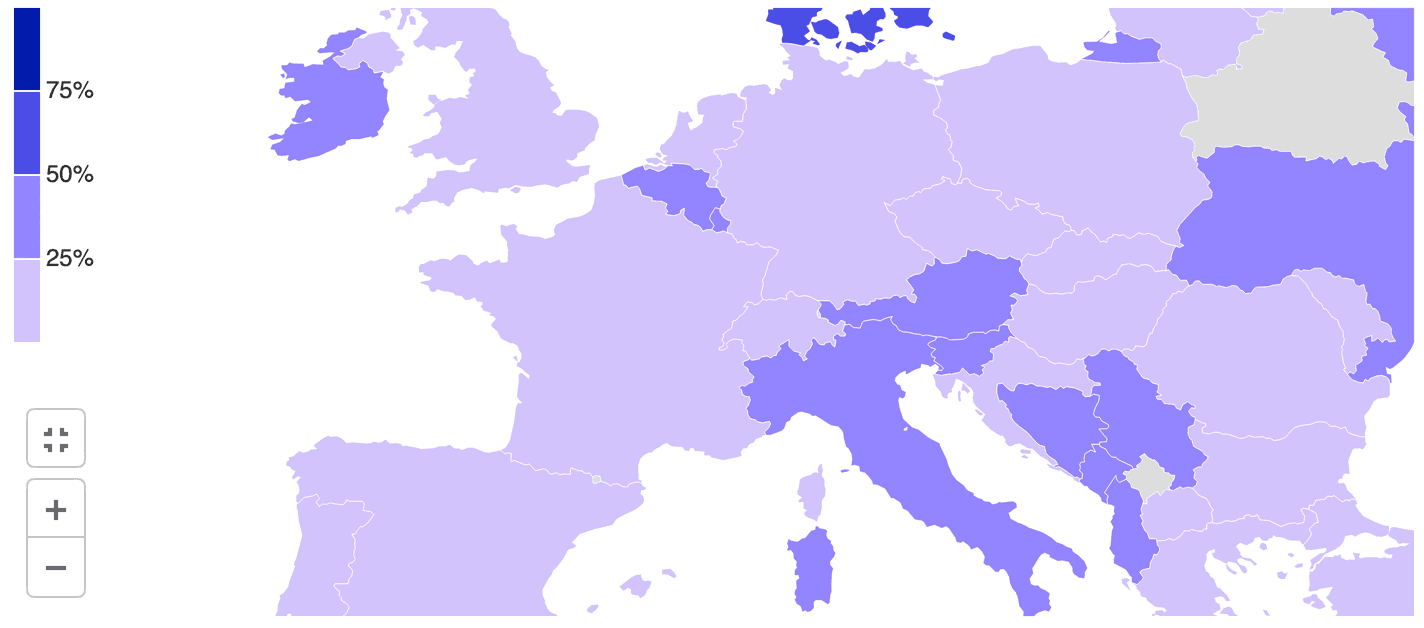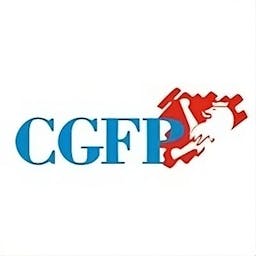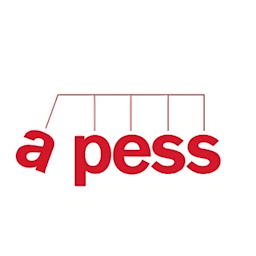
Which trade union you can join in Luxembourg and how
Trade unions play a key role in the industrial relations system in Luxembourg. Their more than century-long history is full of highlights, protests, actions and hundreds of people's stories who found support in these organizations. In this guide we will learn about the history of trade unions, their responsibilities and how to choose the right organization, how to join and what to do if your rights have been violated.
In Luxembourg, workers' interests are represented at two levels: in one of five professional chambers and in trade unions. In the first case, registration is mandatory; in the second, membership is voluntary. Both employees and employers can join a union on a voluntary basis.
Header
Trade unions are a key element of the industrial relations system in Luxembourg. Their primary role is the protection of workers' rights and interests. The history of trade unions in the Grand Duchy dates back to the early 20th century, and today they have become an essential part of the country's social and economic development. To this day, Luxembourg's trade unions actively influence the country's legislation and protect the rights and freedoms of workers in the Grand Duchy.

What influence Luxembourg's trade unions have
Trade unions can not only influence internal changes in Luxembourg, but also participate in policies at the European level. In addition, the members of the organizations support workers and their families, help foreigners to adapt and protect their interests. Here are some important points in the activities of the trade unions.
Trade unions have a significant impact on Luxembourg's domestic politics: they participate in the adoption and drafting of legislation and engage in dialogue with the authorities at the national level. Their influence extends not only to industrial relations, but also to the social and public policies of the Grand Duchy.
Unions are not formally political parties, but their leaders often participate in debates and make public statements. In addition, union representatives may hold political office and thus directly influence the legislative process.
For example, unions advocate for job preservation during economic crises, discuss and advise on labor law reforms, and organize strikes and rallies to influence specific policy decisions or legislation.
Trade unions are actively engaged in dialogue with both authorities and employers on various social issues. Such cooperation takes place through various mechanisms, for example, trade unions cooperate with various NGOs, coalitions and local organizations.
In principle, the social sphere, i.e. issues of interaction with society, remains the domain of the two main trade unions: the OGBL and the LCGB.
Union members are also involved in environmental issues, forming coalitions with environmentalists. The unions also support the Luxembourg branch of Fridays for the Future.
Luxembourg's trade unions, together with other similar organizations in Europe, participate in the setting of the international agenda and are members of various movements. Their main objective is to defend workers' rights and improve working conditions at the global level.
In this way, trade unions share experiences and strategies, successful cases and solutions to common problems. Another global challenge for trade unions is the migration and exploitation of workers.
One of the most important activities of the Luxembourg trade unions is their participation in the European Trade Union Confederation (ETUC). It is composed of representatives of two unions: the OGBL and the LCGB.
The ETUC represents the interests of
This is one of the most important areas of trade union activity. This issue is particularly relevant for Luxembourg, where the percentage of foreigners in the workforce is over 70%.
Sometimes unions also organize language courses or give advice on language learning: where and how to refresh skills or learn a new language, whether compensation can be obtained if training is paid for, and how to obtain a certificate to prove a worker's skills if one is needed.
Unions also try to raise awareness among Luxembourg workers about labor law, solidarity and equality. Such information campaigns are sometimes open not only to members of the organizations but also to the general public.
According to the latest data from the Qery platform, around 28% of all employees in Luxembourg are union members. Don't let the number fool you — this is a very good result compared to the rest of Europe. In neighboring France, for example, only 8.9% of employees are union members, while in Germany the figure is 16.3%.

However, the number of employees in Luxembourg, as well as in the EU as a whole, has decreased: if we take the period from 2002 to 2019, the decrease in terms of numbers is noticeable, from 44% to 28%.
This is probably due to the growing number of foreign workers. They may not be fully aware of the benefits of joining unions, which are productive and effective in protecting the rights of workers in a country. Some unions even offer their members advice on filling out and filing tax returns, such as the OGBL, one of the three largest unions in Luxembourg, which we will introduce to you.
Luxembourg's trade unions are now powerful organizations that have influence even on the European stage. All this has been made possible in part by their rich history of growth and development.
A brief historical background
For more than a century, trade unions have been active in Luxembourg. Through their history of development and transformation, it is clear to see the economic and social changes of the country. Through periods of industrialization, wars and crises, trade unions have always played a key role in protecting the rights of workers in the Grand Duchy.
Modernization in Luxembourg began between 1916 and 1921. During this period, workers began to embrace democratic values and demand social protection. Workers in the mining and metallurgical industries were the first to show interest in unionization. The Luxembourg Confederation of Christian Trade Unions (LCGB), supported by the Catholic Church, was founded in 1921. It was also during this period that the ALEBA trade union was founded to represent the interests of employees in the financial and banking sectors.
After the First World War, Luxembourg, like other European countries, turned to new democratic demands and thus to new, improved working conditions. This was the main impetus for the development of trade unions. The LCGB became one of the most important and largest organizations in this process. So-called workers' committees, professional chambers for workers and special institutions mediating negotiations between workers and employers appeared in this period.
In the post-war period, trade unions were actively involved in the reconstruction of many processes in the country, including economic recovery. The government focused on the recovery and reconstruction of industry, as it played a leading role in the country's economy.
During this period, trade unions strengthened their positions and negotiated for higher wages and better working conditions. One of the most important features of this period was the institutionalization of labor relations and the establishment of the Tripartite Coordinating Committee, which became a key body for discussing labor issues at the national level.
During this period, the global demand for steel declined, which could not help but put pressure on the Luxembourg steel industry. The government and business began to actively develop the service sector, including the financial sector. As a result, the country's banking sector began to grow rapidly, and Luxembourg became one of the largest financial centers in the world.
In the same period, in 1979, another important trade union of Luxembourg was founded — OGBL, which still plays a key role in the labor processes of the Grand Duchy. All these processes (growth of the banking sector, services, becoming a financial center) also had an impact on the trade unions. They had to adapt to new service sectors, changes in employment policies and new skills requirements. At the same time, the European integration of Luxembourg's trade unions began actively.
The process of globalization and technological progress has naturally led to changes in both the Luxembourg economy and the country's labor market. The information technology sector began to grow strongly, and the number of expatriates and cross-border workers increased. Trade unions had to develop and implement new adaptation processes, new working conditions and strategies to protect workers' rights.
In 2008, Luxembourg faced the global financial crisis and the resulting pressures on the economy. However, trade unions successfully met all the challenges, the need to protect jobs and were able to prevent wage cuts and deterioration in working conditions. During the pandemic, they adapted their support to changing conditions. And now they continue to actively defend the interests of workers.
Luxembourg's trade unions can now be divided into two main groups: confederations, i.e. the largest unions, and smaller independent unions.
Confederations, the largest unions
They do not defend the interests of a specific group of workers, but operate nationwide. The special feature of these unions is that they communicate quickly with the authorities. When something happens, the government usually consults with representatives of these unions. This was the case, for example, when they discussed the indexation of wages.



These three confederations are well known in Luxembourg and are the most widespread. However, there are also unions with fewer members, but which enjoy greater respect and influence in the Grand Duchy.
Independent unions
Luxembourg's independent unions play an important role in representing the interests of certain workers. These organizations are not part of the confederations discussed above. Independent unions focus on narrowly defined sectors or specific professions, such as teachers, railway workers and local government employees.





The other unions are affiliated in one way or another to the three confederations. For example, the FLTL, one of the oldest unions in the country, joined the OGBL in 2005, while SPAL and SPFP are affiliated to the CGFP.
Professional associations and employers' organizations are an important part of the industrial relations system in Luxembourg.
The relationship between trade unions, professional associations and employers' organizations in Luxembourg is characterized by a complex system of social partnership and dialogue aimed at developing the economy and improving working conditions. In general, however, all these organizations share a common goal: to defend the rights and freedoms of Luxembourg's workers.




The Chambers were established to represent the interests of different workers. These institutions play an important role in the political dialogue with the authorities on legislative and regulatory proposals. As far as employers' organizations are concerned, they are active in negotiating with the government on the socio-economic development of the country.
Professional chambers were established in 1924. They play an important role in advising the government and parliament on legislative matters.
Chamber of Salaried Employees - Chambre des Salariés, CSL
Chamber of Public Employees - Chambre des Fonctionnaires et Employés Publics, CHFEP
Chamber of Commerce
Federation of Artisans - Fédération des Artisans
Chamber of Agriculture
There are also professional employers' organizations and representative employers' associations in Luxembourg. Some of these are chambers of commerce: for example, the Federation of Artisans, the Chamber of Agriculture and the Chamber of Commerce and Industry.
Employers' Confederation - Union of Luxembourg Enterprises, UEL
Business Federation Luxembourg, FEDIL
Luxembourg Bankers' Association, ABBL
Hotels and Catering Employers’ Federation, HORESCA
Joining a union in Luxembourg is a hot topic for many workers who want to improve their terms of employment and protect their rights. In general, the process of joining a trade union is not too complicated. You usually need to complete an application form, pay an initiation fee and wait for the organization's response.
Here is a brief list of the steps involved in joining a union:
- Find out which unions exist in Luxembourg
Choose the ones that represent your industry or profession and match your values and outlook.
- Compare the terms and conditions of each union
Also research their requirements for joining.
- Make sure you can join the union of your choice
Check that you meet the eligibility criteria, e.g. you must be a teacher in Luxembourg if you choose APESS.
- Contact the representatives or local branches of the unions you are interested in
This can be done in person or by e-mail. Ask questions about membership requirements, benefits and how the union supports its members.
- Fill out an application for membership
Some unions, such as ALEBA, have an application form on their website. If you can't find and fill out an application quickly, you can request one from the union of your choice. When filling out the application form, be sure to provide accurate personal information, including your name, contact information, occupation, place of employment, and any other relevant details. If the union asks you to attach any documents, you should send them as well.
- Submit the completed form to the union
This can be done online, in person at a local office, by paper mail, and other methods. It depends on the union's requirements.
- Wait for approval
It will take some time for the union to process your application. If your application is approved, they may send you a confirmation by e-mail or mail. It is less common to be notified by phone.
- Pay your fees
Find out what dues you will be required to pay as a new member.
- Get involved in the life of the union
Attend union meetings, lectures, seminars and other events to learn about workers' rights, collective bargaining and industry developments. Also take advantage of union services, such as legal advice or representation in labor disputes. Stay informed about your rights as a union member and any changes in labor laws or regulations affecting your industry.
- Get to know each other
Share experiences, problems, and solutions.
When choosing where to join, the biggest unions come to mind first. There are three of them: OGBL, LCGB and the name of the last one I forget, unfortunately. It would seem obvious that you should join one of these federations, but I chose another union for myself. It is also quite large, but still much smaller than those giants. It's called Aleba. Two factors influenced my choice: 1) The union has positioned itself as an organisation for public and bank employees. 2) They turned out to have an adequate website where everything is clear and everything works =)
Usually, when you are choosing and researching unions, you will already know what issues the organization deals with and how to file a complaint if your rights are violated. For example, the OGBL website has a special page on their website where all possible problems are collected. All you have to do is send an email to the union officer, explaining your case in as much detail as possible. If necessary, attach photos or other documents.
In addition, once your membership application has been approved, you will receive a reply letter with all of the important contact information, as well as contact information for people you can talk to if you have any questions.


You will be contacted by those responsible for your issue to clarify the nuances. Then the union representatives will resolve the problem collectively (if there are other workers with similar problems) or individually. Some unions also offer paid advice (including legal advice): all the necessary information will be available on the website or sent to you by post.
Frequently Asked Questions (FAQ)
How to choose a union in Luxembourg
What you need to join a union
What influence do unions have on Luxembourg politics
What are the three largest and most influential unions in Luxembourg
Source: worker-participation.eu, www.worker-participation.eu, lcgb.lu, www.ogbl.lu, www.etui.org, lb.wikipedia.org, qery.no
We took photos from these sources: OGBL Syndicat No 1 au Luxembourg Facebook page, official trade union websites OGBL, LCGB, CGFP, ALEBA, APESS, FGFC, NGL-SNEP, ACEN, FCPT-Syprolux, qery.no